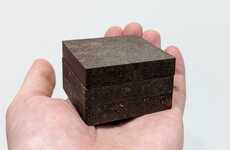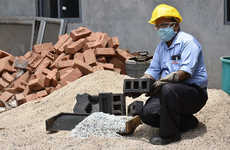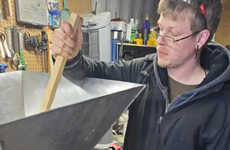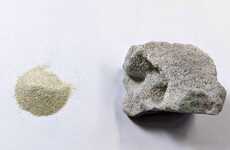
The Bio-Bricks are Made Ecologically and of Human Waste
Justin Lam — October 30, 2018 — Eco
References: news.uct.ac.za
Developed by students from the University of Cape Town, these new bio-bricks are made entirely of human urine. When developing the new bio-bricks student's gathered materials from specially designed male urinals, before mixing the liquid with sand and bacteria. These bricks were designed in an attempt to craft a zero-waste building material that could also be produced in an ecological environment.
To create the bio-bricks, students introduced a natural microbial process known as microbial carbonate precipitation. This process utilizes an enzyme called urease that breaks down the urea in urine while also producing calcium carbonate. This cements the sand into any shape and ensures solid construction. The strength of the bricks can also be optimized to fit specific client needs by simply prolonging the process of construction.
To create the bio-bricks, students introduced a natural microbial process known as microbial carbonate precipitation. This process utilizes an enzyme called urease that breaks down the urea in urine while also producing calcium carbonate. This cements the sand into any shape and ensures solid construction. The strength of the bricks can also be optimized to fit specific client needs by simply prolonging the process of construction.
Trend Themes
1. Urine-crafted Bricks - Creating building materials from human urine presents an opportunity for sustainable construction practices.
2. Zero-waste Materials - Developing zero-waste building materials offers a solution for reducing environmental impact in the construction industry.
3. Microbial Carbonate Precipitation - Implementing microbial processes like carbonate precipitation can revolutionize material production in various industries.
Industry Implications
1. Construction Industry - The construction industry can explore the use of urine-crafted bricks to create more sustainable and eco-friendly buildings.
2. Environmental Engineering - Environmental engineering can leverage the concept of zero-waste materials to develop innovative solutions for waste management and resource conservation.
3. Biotechnology - Biotechnology could explore the application of microbial carbonate precipitation for creating novel materials and products with enhanced properties.
3.2
Score
Popularity
Activity
Freshness























